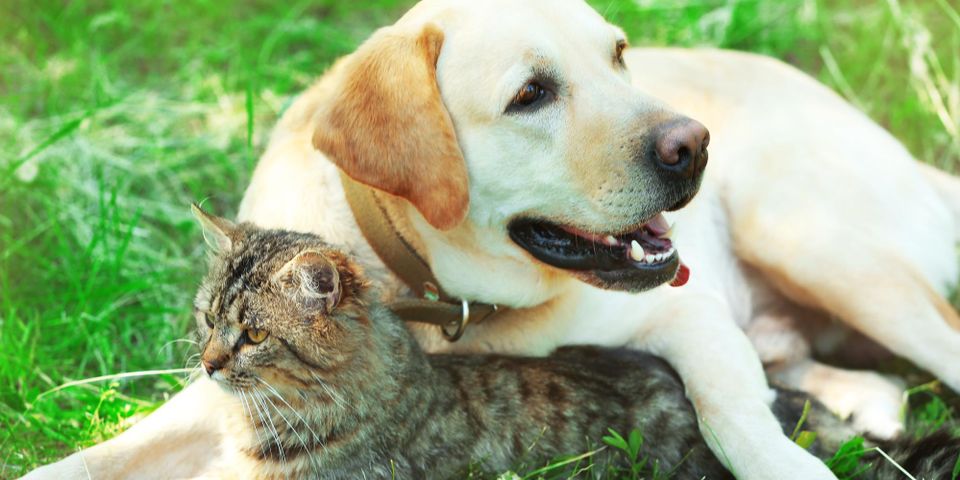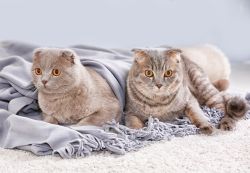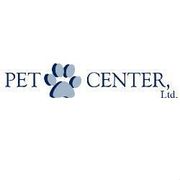
Just like humans, dogs and cats can become obese. Identifying the cause and seeking guidance from a veterinarian is key to their future health and wellness, particularly in extreme cases. Below is a guide for how to help pets at risk for obesity.
How to Know Your Dog or Cat Is Obese
The Characteristics of Pet Obesity
More cats and dogs are being deemed clinically obese. Veterinarians categorize pets by Body Condition Score (BCS), a body fat measurement similar to BMI in humans. Depending on the veterinarian, they will measure your pet either on a scale of 1 to 5 or 1 to 9. A pet that falls in the middle of the range is at a healthy weight. The higher on the scale your dog or cat is, the closer to obese they are considered.
The biggest issues behind pet obesity are too much high calorie food and too little exercise. When both factors are in play, the risk of an overweight animal is greater. Some pet owners find it hard to give their dogs and cats enough playtime, especially during a busy work week.
For dogs, regular walks will help more than letting your pup wander in a yard. For cats, adequate exercise can be tricky, especially for indoor kitties. The best approach is to purchase food dispensers to control snack, climbing gyms, and active toys to get them more fit.
Health Risks
 Obese pets are at risk for certain diseases and conditions, such as arthritis, diabetes, and cancer. For cats, self-grooming and using the litter box become difficult the heavier they get, which can affect them physically and emotionally. When animals become depressed, they have trouble eating and sleeping, and may also have more accidents. All of this has a negative impact on their overall health.
Obese pets are at risk for certain diseases and conditions, such as arthritis, diabetes, and cancer. For cats, self-grooming and using the litter box become difficult the heavier they get, which can affect them physically and emotionally. When animals become depressed, they have trouble eating and sleeping, and may also have more accidents. All of this has a negative impact on their overall health.
Regular visits with your veterinarian will help you keep tabs on your pet’s weight. If your doctor notices an increase, they can offer diet and exercise suggestions before it becomes a larger problem. For animals already measuring too high on the BCS scale, veterinarians can offer safe ways to bring their weight down.
One consideration to discuss with your veterinarian is spaying and neutering. While the process is mainly for population control, it does have a hormonal effect as well; it decreases the amount of calories your dog or cat will need to maintain a balanced life.
The dedicated veterinarians at Pet Center Ltd. in Columbia, MO, bring more than 100 years of combined experience to every animal in their care. If you are concerned that your dog or cat is obese, the animal hospital can provide guidance. They also provide microchipping services and have a pharmacy onsite for purchasing medication. Call (573) 445-3000 for an appointment or visit their website for more information on their services.
About the Business
Have a question? Ask the experts!
Send your question

